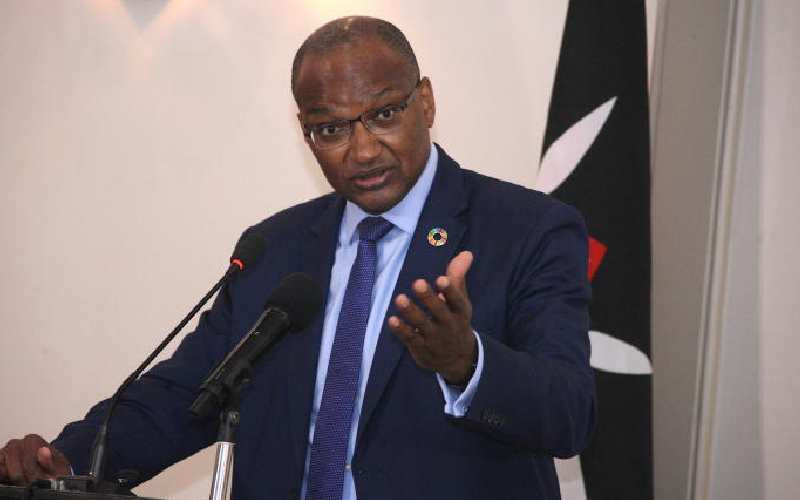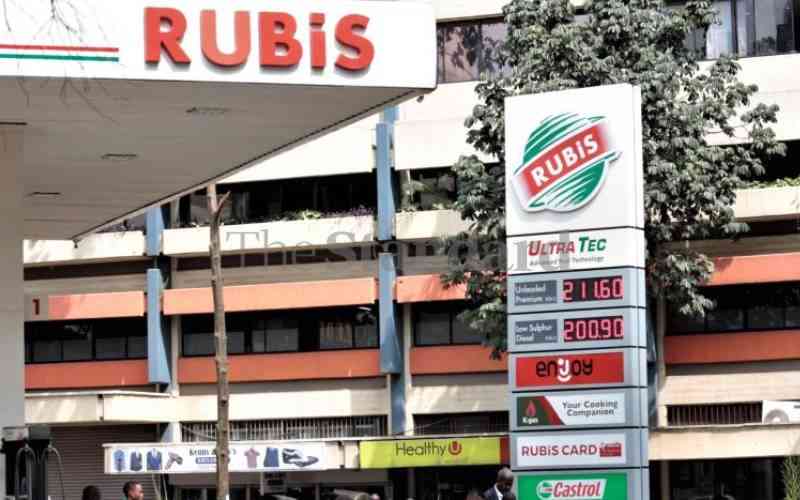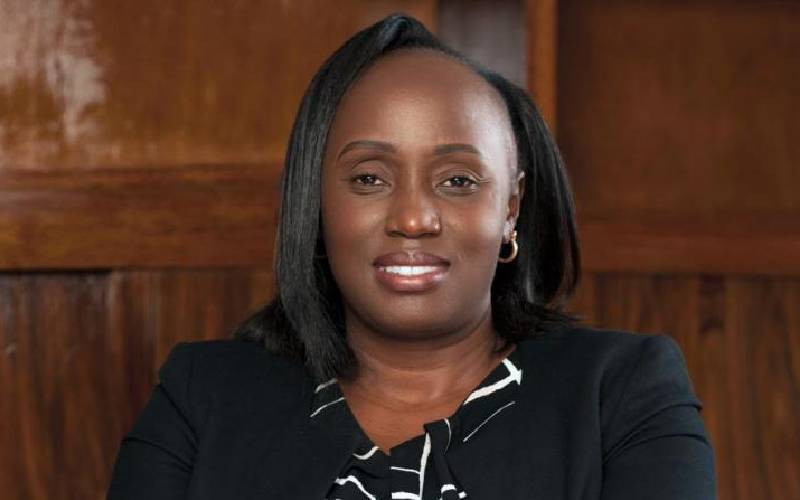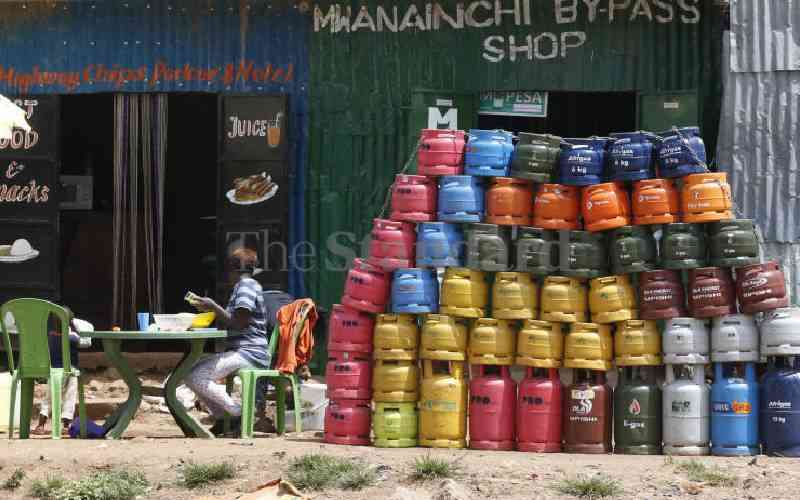
Central Bank Governor Patrick Njoroge. [Wilberforce Okwiri, Standard]
Commercial banks and microfinance institutions have quietly relaxed the rules for reporting transactions beyond Sh1 million.
This comes as the banking regulator keeps mum on a presidential directive to ease the rules issued over a month ago.
President William Ruto asked the Central Bank of Kenya (CBK) to relax the rules to ease doing business in the country.
CBK has seemingly been hesitant to implement the order, also given by retired President Uhuru Kenyatta, citing money laundering concerns and a breach of international obligations.
"In our engagements, traders also complained about the onerous burden involved in cash transactions exceeding Sh1 million," said President Ruto on September 13 in his inauguration speech, adding that many traders have reverted to storing money "under their mattresses" at great risk, which is clearly not the intention of the anti-money laundering regulations. "While we remain fully committed to mitigating this risk, we believe that there is scope to make compliance less burdensome on genuine business transactions.
"I have been assured by the Central Bank that work on how to ease this burden without compromising the security of the financial system is underway."
- Key economic events to shape Kenya in 2024
Keep Reading
Insiders at financial institutions who spoke to Financial Standard said they have quietly relaxed the stringent conditions even as they wait for directions from the banking regulator. "Most lenders have relaxed the rules," one source said.
Lenders earlier said they were waiting for the CBK's nod to raise the threshold for reporting transactions beyond the Sh1 million.
Former President Uhuru had also said last year that a higher cash transaction limit "will facilitate easy transactions for micro, small and medium enterprises and help the economy respond to Covid shocks."
In his Mashujaa Day Speech, he directed the National Treasury to increase the Sh1 million cash transaction limit in which bank customers are required to explain the source and use of the funds whenever they make withdrawals or deposits.
"The financial institutions will retain their reporting obligations to the Financial Reporting Centre," said the retired President without saying what the new limit would be.
He noted that the review would benefit small enterprises, with more than 80 per cent of their financial transactions still being cash-based.
But critics feared raising the transaction limit could be counterproductive, especially at the height of campaigns in the run-up to the August General Election.
With the hurdles against money laundering schemes lifted, dirty money could be introduced into the system without raising suspicion.
Illegal proceeds
Money laundering is a scheme to conceal the source of illegal proceeds so that the cash can be used without detection of its criminal source.
Transparency International Kenya Executive Director Sheila Masinde said it is not helpful that lawmakers had already scuttled efforts to regulate campaign financing and spending limits.
"Politicians are likely to abuse such financial leeway, fail to disclose the sources or the use of the money they withdraw and may use such funds for voter bribery and intimidation, sponsor violence and other electoral malpractices," Ms Masinde told The Standard soon after Uhuru's directive.
The law mandates financial entities to keep records of cash transactions of over Sh1 million and report suspicious deals to the Financial Reporting Centre.
Insiders say banks would benefit from the increase in the threshold for reporting, but the regulator is hesitant as it would breach some international obligations. CBK issued a circular in 2016 reminding banks not to relent on the prudential disclosures.
Business people, however, have complained that the cash limit has hindered their ability to operate smoothly.
CBK Governor Dr Patrick Njoroge said last December that the review was "being dealt with within the apex bank" and that he had to make a good judgment based on several concerns.
In early 2019, Members of Parliament started throwing barbs at Dr Njoroge for instituting what they said were harsh Know Your Customer (KYC) regulations.
The regulations require anyone withdrawing or depositing more than Sh1 million to fill in a form stating where the money is from or going to, who they are paying or receiving the money from and for what purpose.
This is aimed at guarding against money laundering and terrorism financing. "When I received my mortgage, Barclays Bank asked me to explain where the money came from. When you sell your three camels, you are asked where the money is coming from," said then-Majority Leader Aden Duale in September 2019.
Perhaps as a result of these tough KYC rules, cash domiciled outside of banks registered its slowest growth in a decade in 2018.
 The Standard Group Plc is a multi-media organization with investments in media platforms spanning newspaper print
operations, television, radio broadcasting, digital and online services. The Standard Group is recognized as a
leading multi-media house in Kenya with a key influence in matters of national and international interest.
The Standard Group Plc is a multi-media organization with investments in media platforms spanning newspaper print
operations, television, radio broadcasting, digital and online services. The Standard Group is recognized as a
leading multi-media house in Kenya with a key influence in matters of national and international interest.











